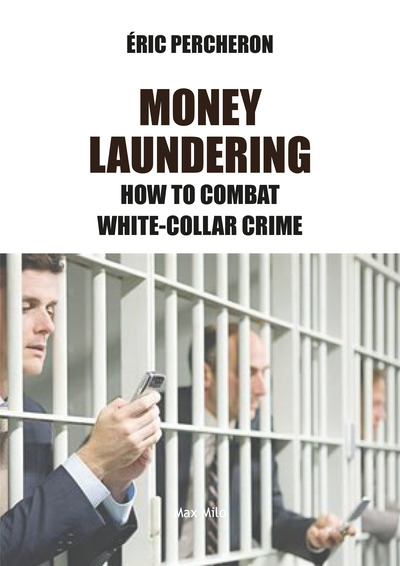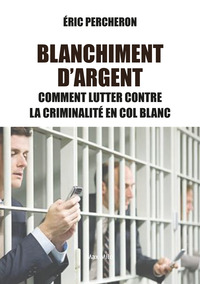Nous utilisons des cookies pour améliorer votre expérience. Pour nous conformer à la nouvelle directive sur la vie privée, nous devons demander votre consentement à l’utilisation de ces cookies. En savoir plus.
Money laundering: white-collar crime
EAN : 9782315024490
Paru le : 3 avr. 2025
-
 Livraison gratuite
Livraison gratuite
en France sans minimum
de commande -
 Manquants maintenus
Manquants maintenus
en commande
automatiquement -
 Un interlocuteur
Un interlocuteur
unique pour toutes
vos commandes -
 Toutes les licences
Toutes les licences
numériques du marché
au tarif éditeur -
 Assistance téléphonique
Assistance téléphonique
personalisée sur le
numérique -
 Service client
Service client
Du Lundi au vendredi
de 9h à 18h
- EAN13 : 9782315024490
- Editeur : Max Milo
- Date Parution : 3 avr. 2025
- Disponibilite : Pas encore paru
- Barème de remise : NS
- Format : H:525 mm L:525 mm
- Poids : 0gr
-
Résumé :
Dirty money never stays dirty for long
Money laundering accounts for 3% of global GDP ($3,000 billion). If it were a country, it would be the world's 8th largest, equivalent to the UK's GDP.
The aim of this essay is to describe the mechanisms by which money is laundered, in particular the two main “schools” of fraud, namely financial flows and capital ownership. And to explore the demonetization of fraud, via the art market, real estate in London and the Alps, and the luxury watch market, which illustrate both the agility of fraudsters and the systematic lag of the authorities in the fight against fraud.
The author also aims to establish the link between fraud, money laundering and the plundering of populations. And between money laundering and the financing of terrorism. Money laundering only exists if the underlying crime that procured the capital to be laundered exists.
He points to the irresponsibility of politicians and financial entities, who through blindness or amorality, allow this white-collar swindle to flourish. Every year, financial entities prefer to pay out over 10 billion dollars rather than control the phenomenon.
Faced with the internationalization of fraud, which amplifies the distortion between supposedly friendly states and the impunity of criminals, it is vital to strengthen international cooperation between authorities if money laundering is to be curbed.Éric Percheron is a research associate at IRIS, specializing in financial compliance and financial security issues (anti-money laundering, analysis of international flows and country risks).
He has spent over thirty years in the French banking industry, both in operational and compliance functions. Over the past fifteen years, he has developed expertise in financial security and compliance in the broadest sense, first in France, then by assisting foreign banks in Eastern Europe and Russia.
He is a regular contributor to professional and business publications, offering analyses of the geopolitical influence of financial crime. An engineer by training (UTC), Éric Percheron is also a graduate of the Institut Technique de Banque, where he later taught, and of the Centre d'Etudes Supérieures de Banques. In addition to his ACAMS (Association of Certified Anti Money Laundering Specialists) certifications. He is a graduate of IRIS Sup' in International Strategy, Geopolitics and Foresight, and holds a Master's degree in Law/Economics/Management, specializing in diplomacy and international relations, from the Université de Bretagne Occidentale.


